
Tuesday December 29, 2020 | VICTORIA, BC
by Mary P Brooke, B.Sc., editor | Island Social Trends
Given how long the COVID-19 pandemic is expected to continue into and likely through much of 2021, today BC Health Minister Adrian Dix was asked today by Island Social Trends if his ministry’s robust surgical renewal program might be cut back a little bit now as a way to pace the work and fatigue of health care workers.
That’s in the context of being able to fully maintain the health care system at a good or optimum level of performance, including for the benefit of patients.
After a cancellation of all elective or scheduled surgeries in March and April in response to the COVID-19 pandemic that was in its first wave, the resurgence of surgeries at an increased pace in BC that began in the first week of May has kept its foot on the pedal ever since. Various health care professionals — including nurses — have spoken up about the wear and tear on their membership.
Meanwhile, today he noted that all the other procedures — in addition to those around dealing with COVID-19 on the front lines — are also still needing to be done “during an extremely challenging time”. That would include a wide range of the high-volume surgical procedures done in BC hospitals that fell behind this year, including organ-related surgeries, hip and knee replacements, and cancer-related treatments.
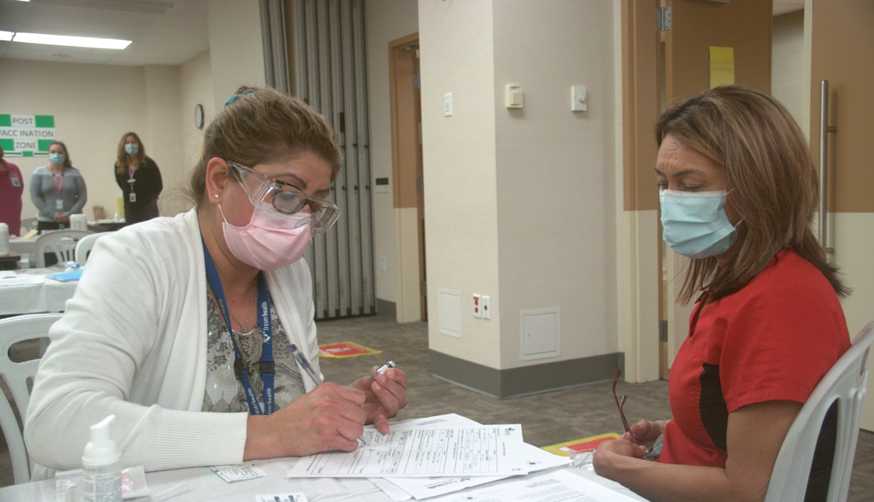
He noted the “extraordinary work” being done by health care workers, nurses, health science professionals, doctors, people who ensure that surgeries are safe, that equipment is good, that operating rooms and hospitals are clean, and workers in all the other places and long-term care.
“We obviously monitor outbreaks carefully. We know — and everybody should know out there – that we are asking a lot of people who work in health care and how much they’re contributing and sacrificing,” said Minister Dix who has been keenly committed to the health care file in Premier John Horgan’s BC NDP government since coming to the post in mid-2017.
In his list of sectors to note, Dix included retirees who have returned to the profession to be part of the massive effort around helping with the COVID-19 immunization campaign but also the annual influenza vaccination program and other public health efforts.
Surgical renewal commitment:
In that context, Minister Dix declared in today’s COVID media session: “At the moment we continue, and we will continue, and are continuing our surgical renewal commitment.” He added: “We think that that commitment is important for people waiting for surgeries.”
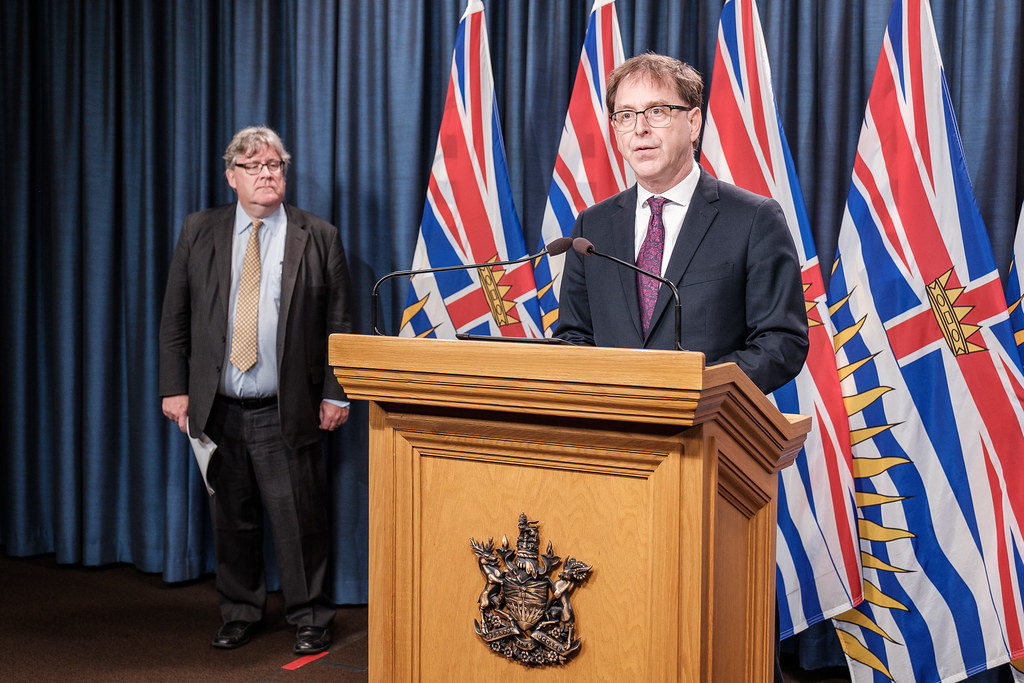
“I’ll be reporting about that surgical renewal commitment and its progress in detail next week,” said Dix.
Ongoing communications:
“We’re obviously regularly in contact with people working (in health care), across the board,” said Dix regarding the “level of ongoing stress related to COVID-19”. He explained that’s not just in terms of workload but also what it means in a facility that is dealing with COVID, during outbreaks, for example.
COVID pandemic is exhausting:
“I’m no stranger to feeling a little tired these days. It is exhausting,” said Provincial Health Officer Dr Bonnie Henry today as part of answering the Island Social Trends question about the ongoing surgical renewal push. “This is part of why we have the restrictions that we have in place in BC. Because it is exhausting,” she said.
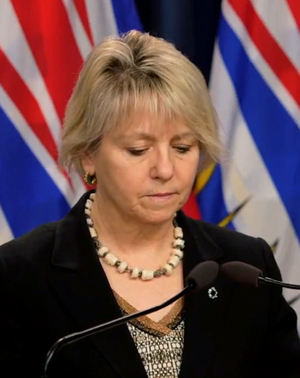
“Anybody knows how challenging this can be,” said Dr Henry. “Not only with the virus and extra things we have to do in our health-care system in particular, but also knowing that people are getting sick and using extra precautions in the community as well. It’s very very challenging.”
In combination with overdose crisis:
“We’re doing this at a time of not one public health emergency but two,” said Minister Dix today. “The overdose public health emergency has also put an extraordinary strain on those same workers including many nurses, doctors, ambulance and paramedics and people who work in the community,” he responded on this topic of worker load.
COVID infections among health-care workers:
About 8.1% of BC’s health-care workers are known to have become infected with COVID-19 this year (January to December 17, 2020).
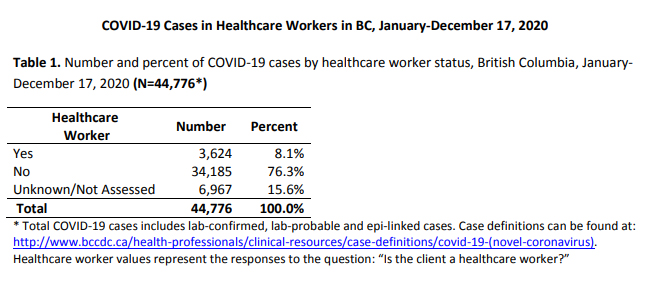
Most infections were identified among care aides (23%), with nurses tracking next at 17%, LPNs and administrative staff each at 6%, dental and housekeeping each at 4%, with physicians at 3% as well as kitchen staff/dietary aide and food services at 3%. Lab technicians were at 1%. Details are in a report for the period January to December 17, 2020.
Everyone doing their part:
“This is a challenging time,” said Dix, wanting to “remind everybody of what we need to do today, tomorrow, next day, new year’s day, and the rest of January …which is to dig in, to follow public health orders.”
Dix continued with a strong reminder on the absolute quarantine requirement for returning travelers: “To ensure that if you have an obligation to quarantine if you’re coming back to our country, that the quarantine is fully observed to its end. Because the people who are dealing with those issues in the health care system are 100% all in and we all need to be as well.”
More contagious UK-variant:
Today Dr Henry said that the more contagious and more infectious UK-variant (B.1.1.7) of the COVID-19 virus “just tells us that we can have less room for error”.
“We cannot have more than our small group of household contacts because even a smaller dose of the virus can lead to transmission and infection in others,” she stated with clarity.
The B.1.1.7 strain is thought to be able to attach more easily to receptors in the mucus membranes of the human body including in the “throat, nose, eyes and blood vessels and others”, said Dr Henry today.
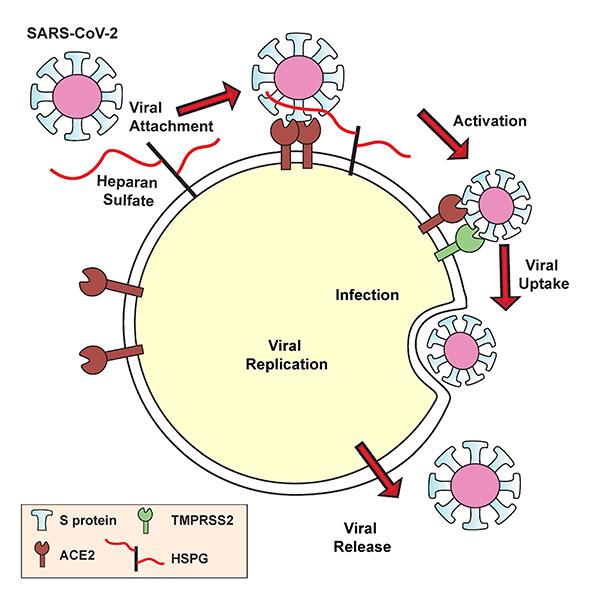
“So we know what we need to do. It’s the same things that we have been doing… we just have a lower margin of error. So we all have to pay attention,” said BC’s top doctor.
These are the doctor’s orders: “Double down and doing what we know works, right now,” said Dr Henry. Her Public Health Officer orders are currently in place to midnight of January 8, 2021.
And given the uptick in concern about post-Christmas-gatherings spread and the more aggressive B.1.1.7 UK-variant, it could well be that the orders around public gatherings, wearing masks in all indoor public spaces, and of course physical distancing will need to continue.



